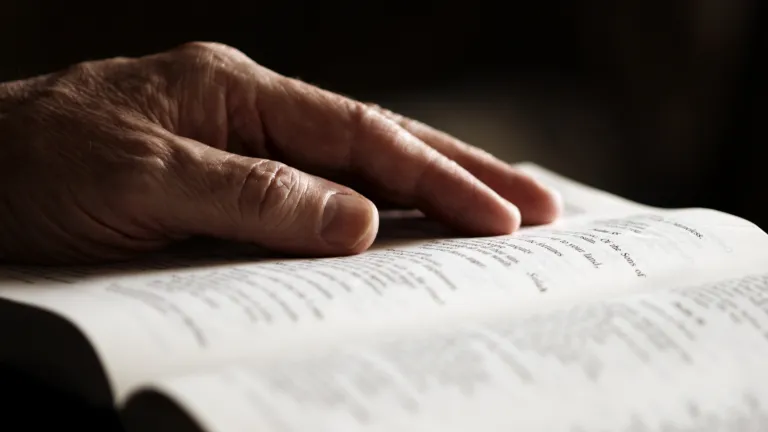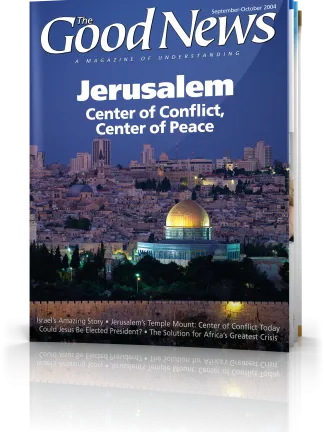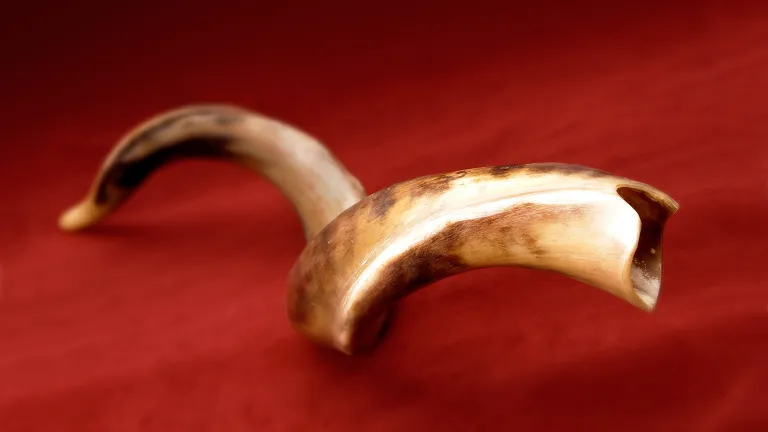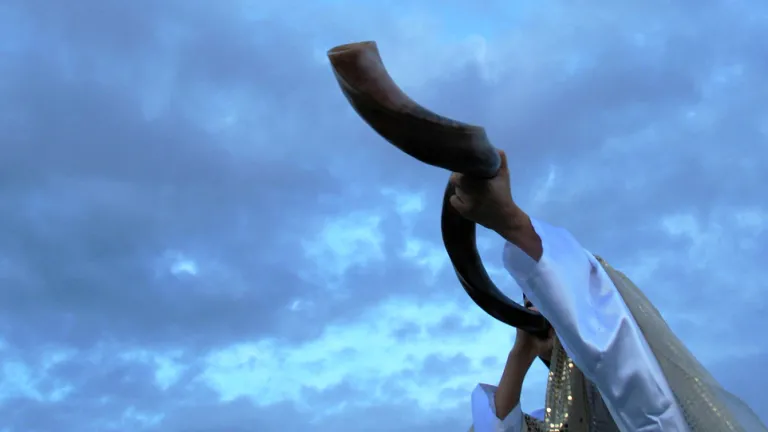The Biblical Feast of Trumpets: Foretelling 'the Day of the Lord'

Does this ancient biblical feast hold great meaning for Christians today?
Every autumn the Jewish community observes a holiday called Rosh Hashanah (meaning "head of the year," because it begins the Jewish civil year). This is a biblical festival, known in Scripture as Yom Teruah, the Day of Trumpets, because the Israelites were to blow trumpets on that day (Leviticus 23:24). A shofar, or ram's horn, is blown calling the faithful to 10 days of repentance culminating in another biblical festival, Yom Kippur or the Day of Atonement.
Most Christians find little meaning in these days, but could they hold an important message for you and your future?
In ancient Israel the shofar was blown for various reasons, including a call to war. Jewish leaders in the first century had to take care when they blew the shofar on the Feast of Trumpets so that the occupying Roman soldiers didn't think a rebellion was being launched.
The Bible speaks of a time before Christ's return when the earth will be engulfed in war, famine, disease epidemics, earthquakes and other colossal disasters. This era, called "the great tribulation" (Revelation 7:14; Matthew 24:21), will bring humanity to the brink of total destruction—necessitating God's promised intervention in human affairs.
The period of God's intervention is called "the day of the Lord." It is also a time known for the blowing of trumpets.
The prophetic Day of the Lord
The Day of the Lord includes a series of cataclysmic events leading up to the return of Jesus Christ and His forceful suppression of humanity's rebellion against God.
It's important to understand that prophecies concerning the Day of the Lord can at times have a former and later fulfillment. What that means is that the messages of the ancient prophets applied in part to the people to whom they were preaching, but many of these prophecies also refer to a future time when God will intervene in the affairs of mankind—a time that is yet to occur.
Many references to the Day of the Lord in the biblical books of Isaiah and Joel refer to punishment God poured out on ancient Israel and Judah. But when reading these prophecies, and comparing them with historical information, it is clear that they are dual in nature and were only partially fulfilled. These verses primarily look to the future when God will pour out His judgment on an unrepentant humanity before the second coming of the Messiah.
This may not be a popular message in today's environment of feel-good religion, but, as we always do on Good News Radio and in our publications, we turn to the Bible as the Word of God in our search for truth.
Many centuries ago, the prophet Zechariah was inspired to write: "Behold, the day of the Lord is coming, and your spoil will be divided in your midst. For I will gather all the nations to battle against Jerusalem; the city shall be taken, the houses rifled, and the women ravished. Half of the city shall go into captivity, but the remnant of the people shall not be cut off from the city.
"Then the Lord will go forth and fight against those nations, as He fights in the day of battle. And in that day His feet will stand on the Mount of Olives, which faces Jerusalem on the east. And the Mount of Olives shall be split in two . . ." (Zechariah 14:1-4).
God's future intervention
God is a God of love and mercy. But He is also a just and righteous God who doesn't compromise with evil. Instead of repenting and acknowledging their Creator, most of humanity has been snubbing their collective noses at Him in a pretense of religion and suffering the consequences. But a time is coming when He will intervene by sending Jesus Christ to rule over the nations and save us from ourselves.
Many Old and New Testament prophecies describe the coming Day of the Lord, including those of the seven trumpets in Revelation 8-11. They create a composite picture of a time of blowing of trumpets, a time of catastrophic war, and a time when all nations will be brought together to be judged by God.
The Feast of Trumpets contains an important message for Christians. In fact, it is the most important news on the globe today. It heralds the gospel's emphasis on repentance and judgment, the warning blasts of the shofar, the Day of the Lord and the proclamation that the Messiah is returning to establish God's Kingdom on the earth.
Jesus Himself makes a key statement in His Mount Olivet prophecy recorded in Matthew 24: "Immediately after the tribulation of those days the sun will be darkened, and the moon will not give its light; the stars will fall from heaven, and the powers of the heavens will be shaken.
"Then the sign of the Son of Man will appear in heaven, and then all the tribes of the earth will mourn, and they will see the Son of Man coming on the clouds of heaven with power and great glory. And He will send His angels with a great sound of a trumpet, and they will gather together His elect from the four winds, from one end of heaven to the other" (Matthew 24:29-31).
Notice that the return of Jesus Christ is accompanied by the sound of a trumpet.
The apostle Paul encourages Christians to keep the coming Day of the Lord in mind. He writes to the church in Thessalonica: "For you yourselves know perfectly that the day of the Lord so comes as a thief in the night. For when they say, 'Peace and safety!' then sudden destruction comes upon them, as labor pains upon a pregnant woman. And they shall not escape.
"But you, brethren, are not in darkness, so that this Day should overtake you as a thief. You are all sons of light and sons of the day. We are not of the night nor of darkness. Therefore let us not sleep, as others do, but let us watch and be sober. For those who sleep, sleep at night, and those who get drunk are drunk at night.
"But let us who are of the day be sober . . . For God did not appoint us to wrath, but to obtain salvation through our Lord Jesus Christ, who died for us, that whether we wake or sleep, we should live together with Him" (1 Thessalonians 5:2-10).
Indeed, the resurrection of the saints to reign with Christ in glory will come at the sounding of the last trumpet (1 Corinthians 15:51-52; 1 Thessalonians 4:16-17).
The prophesied Day of the Lord is coming. The trumpet will sound, the saints will be raised from the grave and Jesus Christ will return to establish His Father's Kingdom on the earth. The Feast of Trumpets isn't just for the Jewish people. It is a very special day for all those who wait for the Messiah.





![Terrifying heavenly signs will occur “immediately after the [great] tribulation of those days.” Fireballs going through space.](/sites/default/files/public/styles/fp_widescreen_768x432/public/image/article/2018/10/18/bible-prophecy-you-armageddon-the-day-of-the-lord.jpg.webp?h=f367156d&itok=HmoJbf0n)

